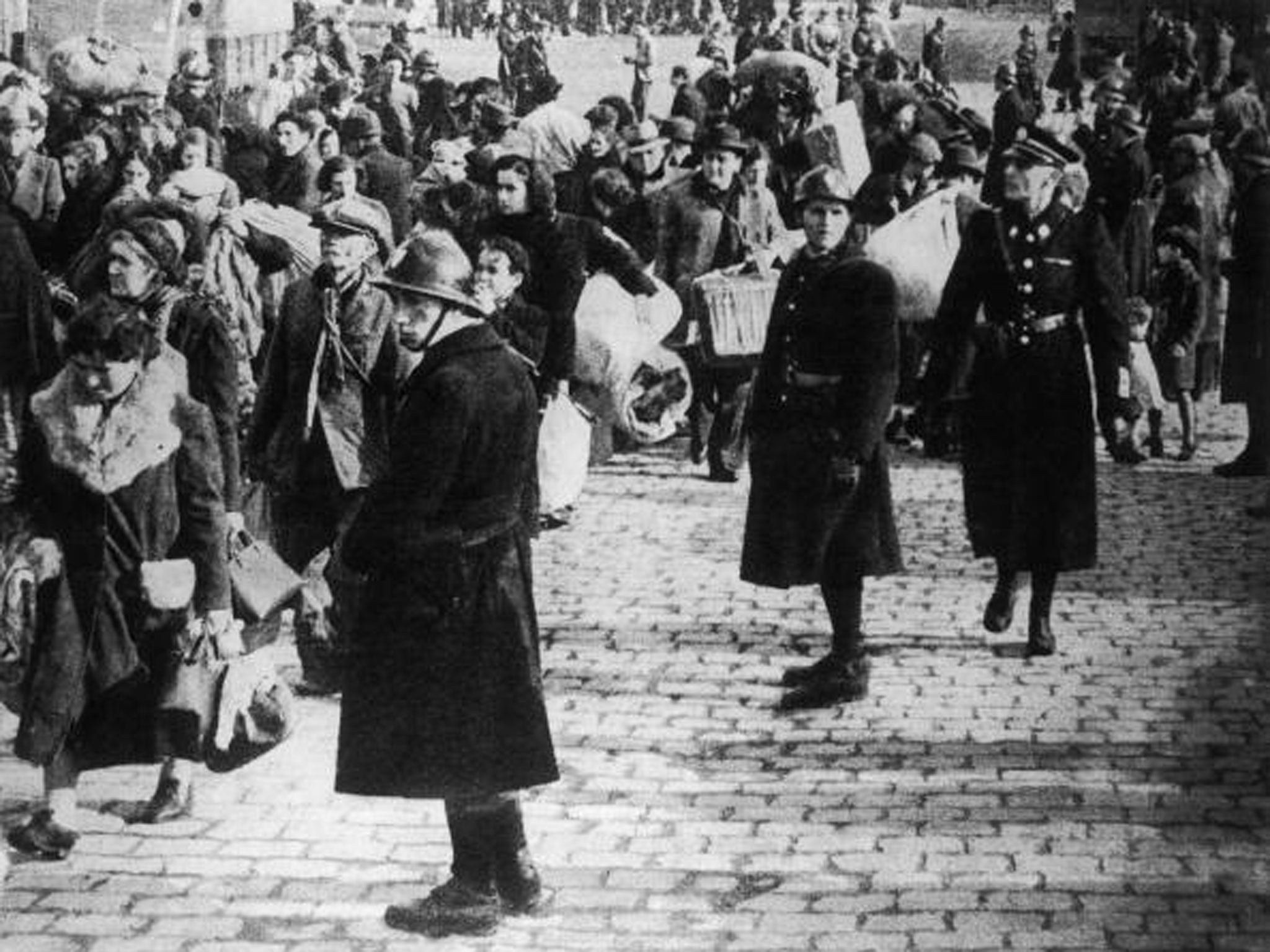The Occupation Trilogy by Patrick Modiano; trans. Frank Wynne, Patricia Wolf & Caroline Hillier, book review
A trio of sinister novels examine shameful secrets from France's Nazi occupation

"It's a strange idea, really, to go stirring up all these dead things." For decades after the Second World War, mainstream French culture felt much the same as the narrator of Patrick Modiano's novel Ring Roads. With the economy soaring, the consoling myths of the Resistance locked in place, and France a high-fashion exporter of formalistic, anti-historical schools of thought and art, the bitter shame and division of the Occupation years could be safely buried.
Modiano, the son of a migrant Jewish family whose father survived the war through desperate deals and fixes, never forgot. Last year, he received his belated due with the award of the Nobel Prize in Literature. Brisk, smart, witty, elliptical, his early fiction plunges into the "night and fog" of French surrender, compromise and resistance. However, as this trilogy of short, sinister novels proves, he was certainly a child of his time.
Published between 1968 and 1972, the trio of tales not only probe every open wound left by the German invasion and its demoralised aftermath. They do so in a snappy, swift and sometimes mysteriously scrambled style. It recalls the directors of the New Wave – Godard, Truffaut, Louis Malle, for whom Modiano wrote Lacombe, Lucien – as much as the opaque narrators of the nouveau roman. Born in 1945, Modiano turns a post-1968 artistic sensibility on the moral abjection of 1940-1944.
"You try to forget the past," reflects the anti-hero of The Night Watch, "but your footsteps invariably lead you back to difficult crossroads." Modiano digs down at those crossroads to disinter the secrets buried there. However, his debut, La Place de L'Etoile, may not be the best entry-point for readers new to his demi-monde of con-men, spivs, spies and double-dealers who thrive in "the chaos and the murk".
A young writer's provocative jeu d'esprit, it rounds up every sacred cow in French literature and politics, and mercilessly slaughters them. Ostensibly the picaresque tale of a Jewish chancer and impostor, Raphael Schlemilovitch, the novel mashes logic and chronology into a delirious satirical fantasy. Modiano takes down not just wartime anti-Semitism and the cultivated lickspittles who fawned on the Nazis, but the Gaullist blood-and-soil kitsch of La France Profonde ("the earth, the earth does not lie…). Translator Frank Wynne captures this scattergun savagery with formidable bite. Yet this literary Molotov cocktail or chucked cobblestone belongs to its moment: 1968, not 1944.
With The Night Watch, we enter deep into the shadowland of defeated Paris. Its pliable narrator has suffered "so many broken promises… that becoming a model traitor seemed like child's play". Now the guilt-ridden "henchman to a gang of torturers", he skulks around this coterie of exotic collaborators who do the Gestapo's dirty work, while informing on a Resistance cell. But can this self-hating double agent summon the courage to betray the betrayers? Bracing and brilliant, The Night Watch deepens the twilit mood of 1940s film noir or mid-period Graham Greene with an immersive intensity.
Almost as remarkable, Ring Roads puts the quest for a damaged but beloved father centre-stage. In wartime Paris the narrator tracks down the parent who forsook him. Now up to his eyeballs in the mire of collaboration, Father hangs out with the sort of seedy frauds who flourished under Occupation. Amid a sordid shower of "informers, blackmailers and corrupt hacks", this worst of progenitors still commands loyalty: "We will walk on quicksand to the end". If The Night Watch will conjure Greene on these shores, then here the paternal pretenders of John le Carré, with their toxic legacy of masks and lies, may come to mind. "Orphans as we are," broods the disenchanted, devoted son, "we are doomed to track ghosts in our search for fatherhood."
Subscribe to Independent Premium to bookmark this article
Want to bookmark your favourite articles and stories to read or reference later? Start your Independent Premium subscription today.

Join our commenting forum
Join thought-provoking conversations, follow other Independent readers and see their replies